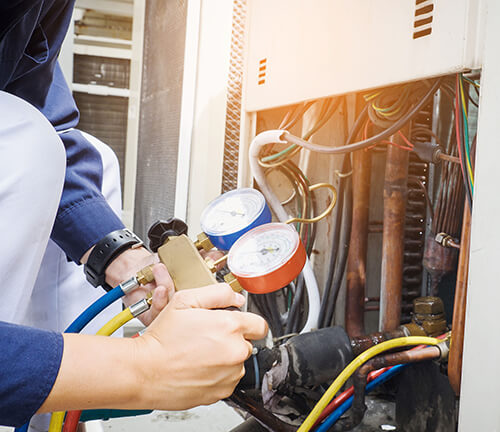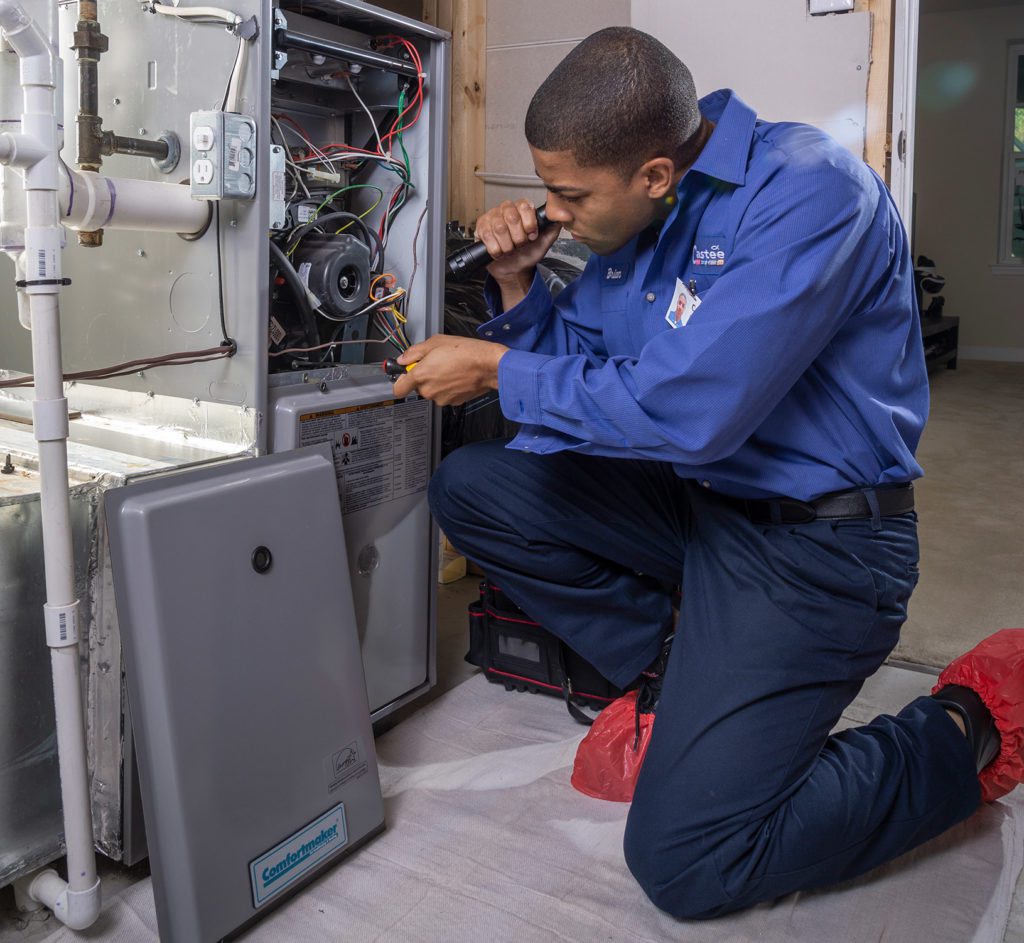When to Ask For Emergency AC Service Brownwood TX: What You Need to Know
The Value of Cooling And Heating Installment: Secret Factors To Consider for a Comfortable Indoor Atmosphere
The installation of a heating and cooling system is an important element in achieving a comfy and energy-efficient interior environment. However, the process entails a number of nuanced considerations that go beyond simply choosing an unit off the shelf. Elements such as the suitability of the system for specific building needs, appropriate sizing to circumvent ineffectiveness, and the experience of professionals for a top quality installation play pivotal roles. In addition, the fostering of sophisticated technologies can substantially enhance system efficiency. Understanding these complexities is just the beginning of making sure ideal indoor convenience. What are the crucial components that determine successful cooling and heating execution?
Choosing the Right System

When choosing an a/c system, it is essential to evaluate the capacity needed to efficiently warmth or cool down the space without exhausting the system, which can bring about raised wear and functional prices. Consulting with a specialist heating and cooling service provider can give beneficial understandings right into choosing a system that straightens with both the awaited use and the building layout patterns of the structure.
Furthermore, thinking about the combination of smart modern technology can boost system monitoring and surveillance, providing better control and prospective cost savings. By thoroughly analyzing these aspects, one can make sure the choice of an a/c system that not only meets prompt needs but additionally adds to long-term operational sustainability and passenger convenience.
Comprehending Power Effectiveness
Recognizing power efficiency is crucial when considering a HVAC setup, as it straight influences both the environmental impact and the operational expenses of the system. The performance of a HVAC system is generally indicated by scores such as SEER (Seasonal Energy Efficiency Ratio) for air conditioners or AFUE (Annual Gas Use Efficiency) for heaters.

Buying an energy-efficient a/c system not only converts to cost savings however also contributes favorably to environmental conservation by lowering greenhouse gas exhausts. Furthermore, several jurisdictions supply incentives or discounts for the setup of high-efficiency systems, better enhancing their economic appeal.
When reviewing power effectiveness, consider advanced features such as variable speed electric motors, wise thermostats, and zoning capacities. These developments boost the system's capability to change to differing demand, therefore enhancing power usage. It is essential to talk to a/c experts who can offer insights right into the finest alternatives customized to specific environment problems and use patterns, ensuring maximum performance and comfort.
Significance of Correct Sizing

Alternatively, a small HVAC system will certainly struggle to reach the wanted temperature, especially during extreme weather. This can lead to constant operation, leading to greater power costs and prospective getting too hot of system parts. Furthermore, poor sizing can lead to inconsistent temperature level distribution, creating certain locations of a building to be too cozy or too awesome.
To achieve the right sizing, a detailed load estimation is necessary. This involves assessing different factors such as the building's square video, insulation levels, window kinds, and neighborhood climate problems. By properly figuring out the home heating and cooling down needs of an area, a/c experts can suggest systems that ensure efficient why not check here procedure, minimized power usage, and enhanced interior comfort.

Making Sure Top Quality Installation
A seamless HVAC setup is the foundation of a system's long life and efficiency. Ensuring top quality setup includes precise attention to detail, adherence to sector requirements, and utilizing proficient specialists. The process begins with picking a qualified and skilled HVAC service provider. This specialist should have extensive knowledge of diverse systems and be proficient at evaluating the details demands of the structure.
Correct installation surpasses simple positioning of equipment. It entails accurate calibration to guarantee optimum air flow, efficient power consumption, and consistent temperature level distribution. This consists of precise ductwork installation, making sure connections are leak-free and protected, which is crucial for preserving system performance and interior air high quality.
In addition, the implementation of sophisticated analysis tools throughout installment can detect potential concerns early, avoiding expensive repairs and extending the lifespan of the system. The service provider needs to also make sure that all elements are compatible which the system conforms with neighborhood structure codes and laws.
Regular Upkeep Practices
When the foundation for a high-performing HVAC system is established with high quality setup, the emphasis should move to regular upkeep methods to make sure continued performance and dependability. Routine upkeep not only prolongs the lifespan of the system yet additionally improves interior air high quality, decreases energy consumption, and protects against costly repair services. Crucial upkeep jobs include frequently transforming air filters, cleaning up evaporator and condenser coils, go and examining the system for leaks or obstructions.
This simple job can considerably boost air flow and system efficiency. Additionally, specialist technicians ought to check the system annually, examining for refrigerant levels, electrical connections, and total system performance.
Interest to ductwork is also crucial; sealing and cleansing air ducts on a regular basis prevents air loss and contamination. Executing an upkeep routine guarantees that minor problems are resolved prior to they rise, securing the system's operational honesty. By sticking to these upkeep techniques, house owners can optimize their heating and cooling system's functionality and preserve a comfortable indoor environment year-round.
Final Thought
By selecting a proper system tailored to certain building needs, recognizing energy effectiveness, and making certain right sizing, inefficiencies can be decreased. The participation of competent contractors assurances top quality setup, while the assimilation of sophisticated innovations enhances system performance and surveillance.
Numerous types of A/c systems are available, consisting of split systems, crossbreed systems, duct-free systems, and packaged heating and air systems, each with unique benefits and limitations.
Understanding energy performance is important when taking into consideration a Heating and cooling installment, as it straight affects both the environmental footprint and the functional expenses of the system. The performance of a HVAC system is normally suggested by scores such as SEER (Seasonal Power Efficiency Ratio) for air conditioners or AFUE (Yearly Fuel Utilization Efficiency) for heating systems (air conditioning installation Brownwood TX).Once the foundation for a high-performing HVAC system is established with high quality setup, the emphasis must shift to routine maintenance methods to make certain ongoing performance and integrity. In addition, expert specialists should evaluate the system yearly, examining for refrigerant levels, electrical connections, and overall system efficiency